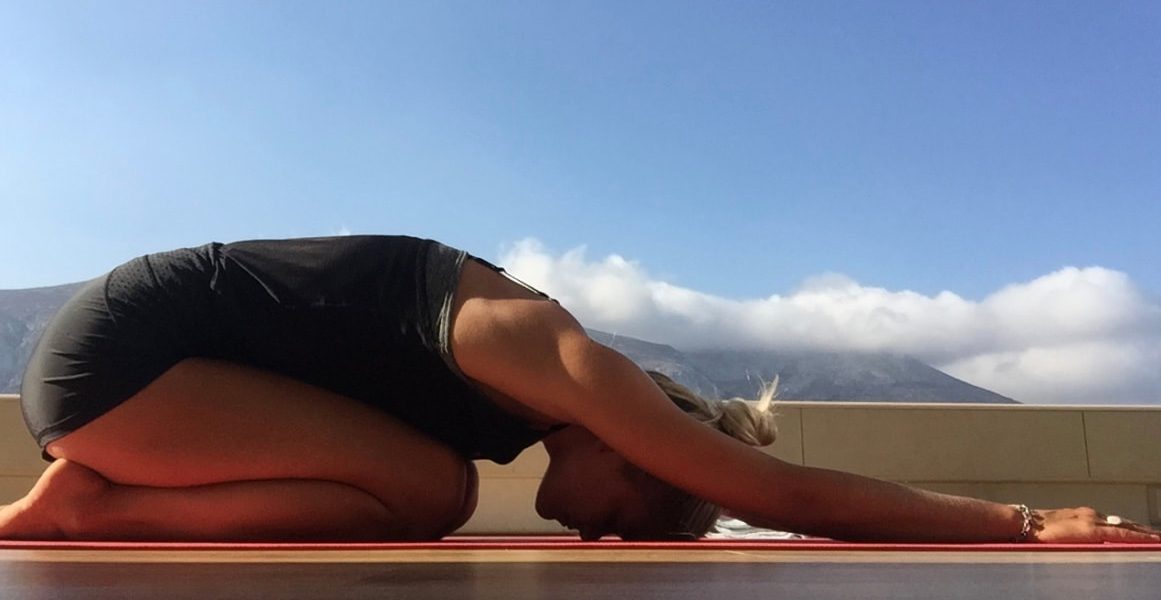Other Names
Child Posture, Baby Pose, Foetus Pose, Bal Asan, Bala Asana, Garbhasana, Gharbha Asana, Gharabh Asan

Description
Balasana is a resting pose that can precede or follow any asana. It looks like a foetus that’s why it is also called Foetus pose or Garbhasana.
How to reach the stretch
- Firstly kneel on the floor.
- Touch your big toes together and sit on your heels, then separate your knees about as wide as your hips.
- Exhale and lay your torso down between your thighs.
- Broaden your sacrum across the back of your pelvis and narrow your hip points toward the navel, so that they nestle down onto the inner thighs.
- Lengthen your tailbone away from the back of the pelvis while you lift the base of your skull away from the back of your neck.
- Feel how the weight of the front shoulders pulls the shoulder blades wide across your back.
- Balasana is a resting pose.
- Stay anywhere from 30 seconds to a few minutes.
- Beginners can also use Balasana to get a taste of a deep forward bend, where the torso rests on the thighs.
- Stay in the pose from 1 to 3 minutes.
How to release the stretch
Benefits
- Gently stretches the hips, thighs, and ankles.
- Calms the brain and helps relieve stress and fatigue.
- Relieves back and neck pain when done with head and torso supported.
Caution
- Diarrhea.
- Pregnancy.
- Knee injury: Avoid Balasana unless you have the supervision of an experienced teacher.


